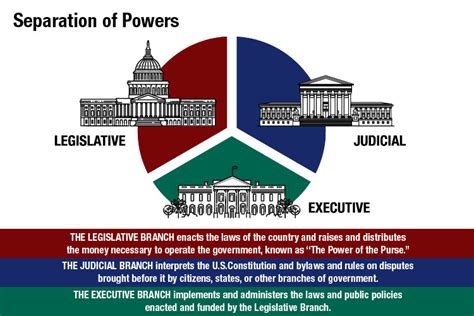Introduction
In a democratic society, the concept of “constituent” holds paramount importance. Constituents are the citizens who reside within a particular electoral district and elect officials to represent their interests and concerns. Understanding the definition, role, and responsibilities of constituents is crucial for effective representation in the American political system.

Definition of “Constituent”
According to the Merriam-Webster dictionary, a constituent is “one who forms part of a group, body, or community.” In the context of AP Government, a constituent refers to an individual citizen who resides within a specific electoral district and has the right to vote for their representatives in government.
Types of Constituencies
There are various types of constituencies based on the level of government:
- Federal Constituencies: Voters who elect representatives to the United States Congress, including the Senate and House of Representatives.
- State Constituencies: Voters who elect representatives to a state legislature, such as the state senate and house of representatives.
- Local Constituencies: Voters who elect officials to serve on local governing bodies, such as city councils and county boards.
The Role of Constituents
Constituents play a vital role in the democratic process by:
- Electing Representatives: Citizens have the power to choose their representatives through elections, ensuring that their voices are heard in government.
- Providing Feedback: Constituents can communicate their concerns, opinions, and priorities to their elected representatives through letters, emails, phone calls, and public meetings.
- Holding Representatives Accountable: Citizens have the responsibility to hold elected officials accountable for their actions and decisions, and to vote them out of office if they fail to represent their interests.
Responsibilities of Constituents
Effective constituent representation requires active participation from citizens:
- Stay Informed: Constituents should stay informed about political issues and the actions of their elected representatives.
- Engage in Civic Activities: Participation in public meetings, rallies, and other civic activities allows constituents to express their views and influence decision-making.
- Vote in Elections: Exercising the right to vote is crucial for ensuring that representatives align with the will of their constituents.
Responsibilities of Representatives
Elected representatives have a duty to:
- Represent Constituent Interests: Representatives must advocate for the concerns and priorities of their constituents within the legislative process.
- Be Accessible and Responsive: Representatives should maintain open communication channels with constituents to address their issues and respond to their requests.
- Work for the Public Good: While representing constituent interests is essential, representatives must also consider the broader public interest and make decisions that benefit the community as a whole.
Common Mistakes to Avoid
When it comes to constituent representation, both representatives and constituents should avoid certain pitfalls:
- Ignoring Constituent Concerns: Representatives who fail to listen to and address constituent concerns risk losing their support and trust.
- Overpromising or Making Unrealistic Commitments: Representatives should avoid making promises they cannot keep, as it can damage their credibility and relationship with constituents.
- Using Constituency Power for Personal Gain: Representatives should not exploit their positions to benefit themselves financially or politically.
Table 1: Types of Constituencies
| Level of Government | Constituency Type | Example |
|---|---|---|
| Federal | House of Representatives | 24th Congressional District of Texas |
| State | State Assembly | 43rd Assembly District of California |
| Local | City Council | 6th City Council District of Minneapolis |
Table 2: Role of Constituents
| Role | Description |
|---|---|
| Electing Representatives | Choose officials who will represent their interests in government |
| Providing Feedback | Communicate concerns, opinions, and priorities to elected officials |
| Holding Representatives Accountable | Ensure representatives fulfill their duties and are responsive to constituent needs |
Table 3: Responsibilities of Representatives
| Responsibility | Description |
|---|---|
| Representing Constituent Interests | Advocate for constituent concerns and priorities |
| Being Accessible and Responsive | Maintain open communication channels with constituents |
| Working for the Public Good | Consider the broader public interest and make decisions that benefit the community |
Table 4: Common Mistakes to Avoid
| Mistake | Description |
|---|---|
| Ignoring Constituent Concerns | Representatives fail to listen and address constituent issues |
| Overpromising or Making Unrealistic Commitments | Representatives make unattainable promises |
| Using Constituency Power for Personal Gain | Representatives exploit positions for personal benefit |
FAQs
1. What is the difference between a constituent and a voter?
A constituent is a citizen who resides within an electoral district and elects representatives, while a voter is any person who participates in an election, regardless of their place of residence.
2. Do constituents have any legal standing?
Yes, constituents have the right to petition their government, express their opinions, and hold representatives accountable through legal mechanisms such as lawsuits and freedom of speech protections.
3. How can I find out who my representatives are?
Contact your local election board, visit the websites of government agencies (e.g., Congress.gov), or use online tools to locate your representatives based on your address.
4. What can I do to participate in constituent representation?
Attend town hall meetings, write letters or emails to your representatives, and stay informed about political issues and upcoming elections.
5. What are the most important qualities of an effective representative?
Responsiveness, accessibility, transparency, and a commitment to representing constituent interests and the public good.
6. Can representatives face repercussions if they do not represent their constituents’ interests?
Yes, representatives can be voted out of office in subsequent elections if they fail to meet the expectations of their constituents.
Conclusion
Constituents are the cornerstone of democratic representation, empowering citizens to shape their government through the electoral process. Understanding the definition, role, and responsibilities of constituents is crucial for ensuring effective representation that serves the interests of the people. By actively engaging in civic activities, constituents can hold their representatives accountable and ensure that their voices are heard in the halls of power.
